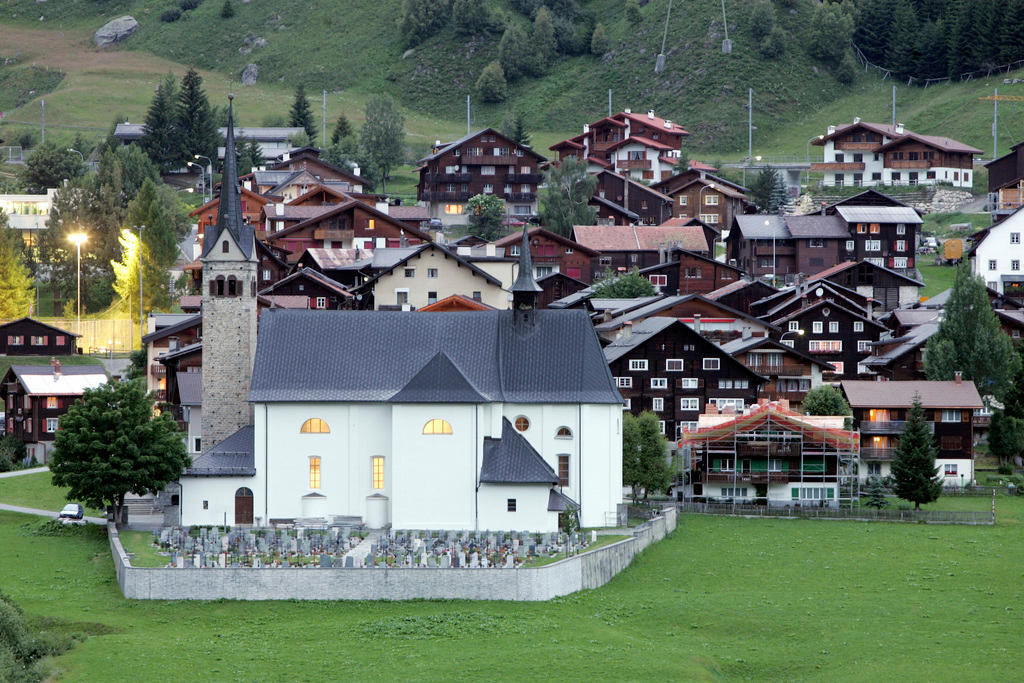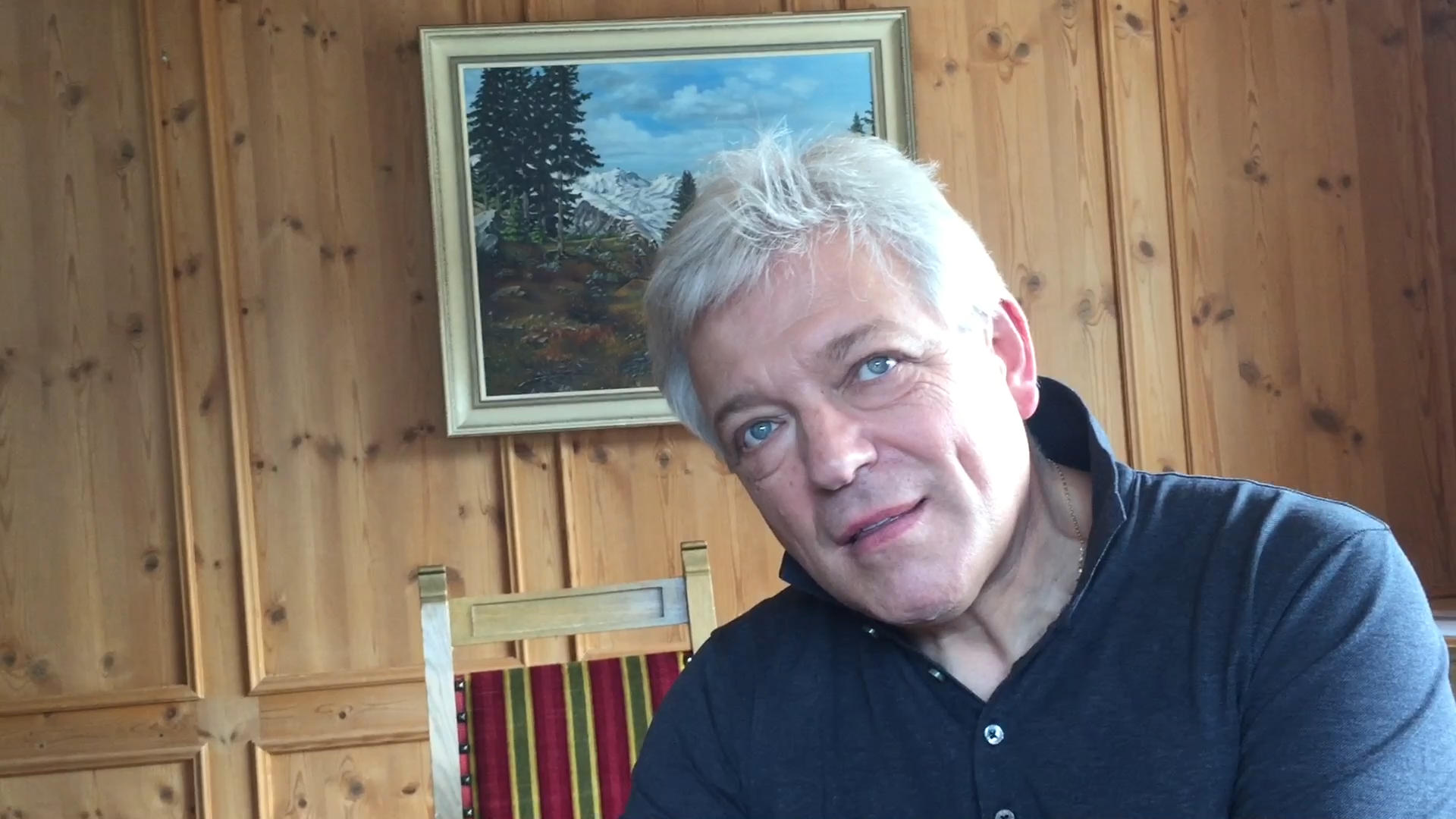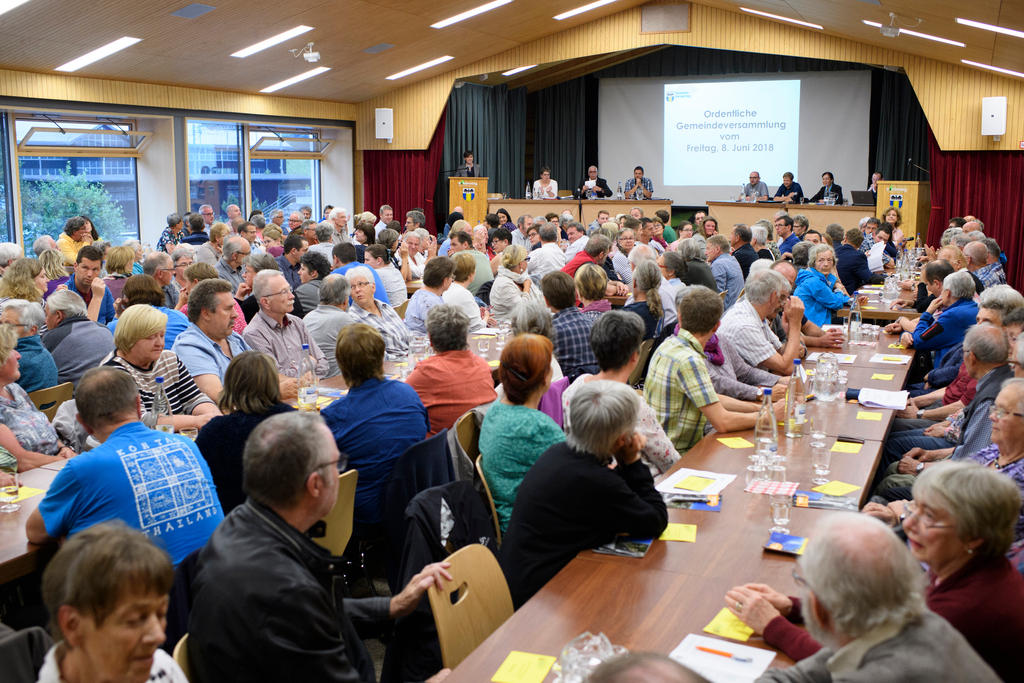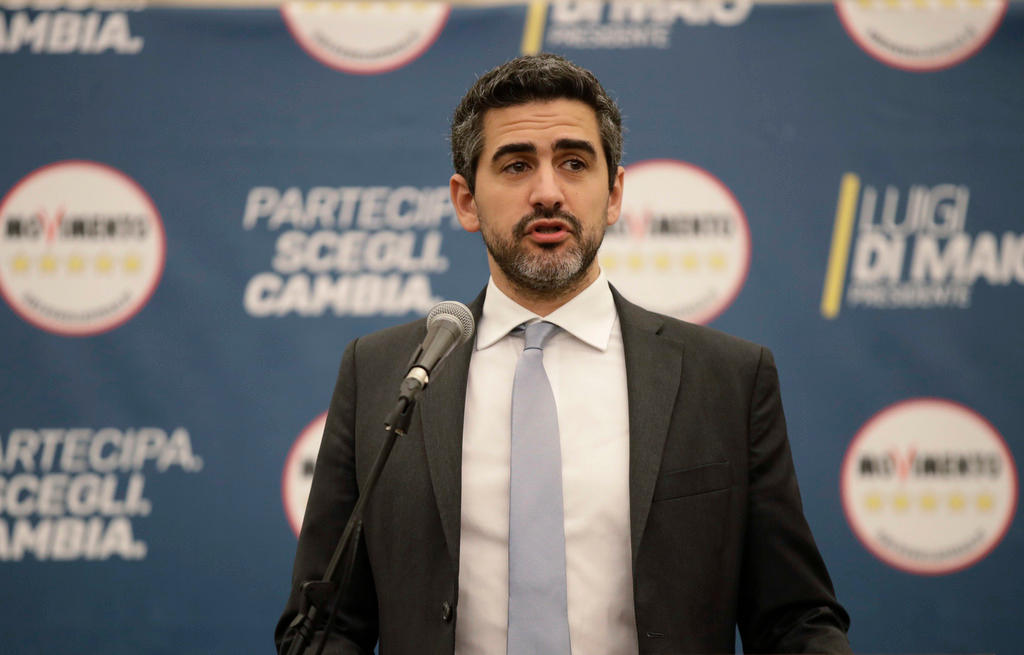Holidaymaker becomes village chief

Heading the local council seems to have lost its appeal in the mountain village of Tujetsch. That’s why it took a headhunter to find Beat Röschlin, a former company manager who owns a holiday flat in the village.
“When I agreed to take on this position, I had no idea what to expect. No clue at all,” Beat Röschlin says. Clad in a grey polo shirt with his collar turned up, he sits in his wood-panelled office in the local community building in Sedrun, the main village of the spread-out commune of Tujetsch in canton Graubünden.
The big window behind him offers a view of a green meadow with high snow-capped mountains towering above it.
A manager, not a politician
Unlike many other local politicians in Switzerland, the 64-year-old comes across strong, direct and ambitious. It is rare to find a man of this calibre serving as a mayor. “I’m a manager. I’ll never be a politician,” he notes. It is no secret he draws on management principles to govern his community.

More
“We need to change the system”
But how does a lowlander like Beat Röschlin end up moving from the service-oriented town of Zug to a mountain village in another part of the country to take on the job of village chief?
In spring 2014, his predecessor Pancrazi Berther failed to get re-elected in the first round. He was so frustrated that he did not even bother to stand in the second round and threw in the towel. There was no other contender and so, from one day to the next, Tujetsch was left without a leader.
Berther is experiencing first hand what many citizen politicians struggle with in Switzerland. In Switzerland’s more than 2,000 municipalities, holding political office means a lot of work and headaches, but limited appreciation of your efforts.
Under the Swiss system holding public office is not a primary source of income. The pay for mayors and local councillors is largely symbolic. The issues the politicians must deal with are complex. Finding candidates for local councils has become difficult, sometimes even impossible in many Swiss villages.
The lack of volunteers wanting to take on responsibilities, such as holding office in the executive branch of the local community or in commissions, can have disastrous consequences: It’s an existential threat to local communities, weakening Switzerland’s system of local democracy.
The hunt is on
Over the past five years, institutions such as think tanks Avenir Suisse and the Aarau Centre for Democracy (ZDA) have attempted to find solutions to mitigate the growing crisis.
They have come up with two approaches for how the system could be strengthened, suggesting better pay as well as an obligation to take on political offices. The idea of compulsory service has already been introduced in some Swiss communities.
The idiosyncratic residents of Tujetsch, however, wanted to do it differently. They hired a headhunter who distributed flyers throughout the village, giving special attention to holiday-home owners.
One of them ended up in Röschlin’s mailbox. The then 60-year-old had just finished his career as a manager. He had travelled the world in his work, and his job had taken him to the top level of American and Swiss advertising agencies.
“Immediately hooked”
When Röschlin opened his mail, he was hooked. Despite never being politically active before, he submitted his application, just as if he were applying for a job as a CEO.
The local community invited him for an interview, asked him endless questions and finally nominated him as candidate for the executive board. There was another aspirant for the position but he dropped out after finding out there was another contender.
In March 2015, Röschlin won the elections taking 98% of all votes.
Even though the job of the Tujetsch mayor is only part-time on paper, it takes much more time and commitment. Röschlin had to move to Sedrun, although his wife stayed at home to continue her work as a teacher.
Since his election, Röschlin has been travelling between canton Zug and his new workplace in the mountains. The commute takes at least two hours, and even longer in winter.
Management mantra
When he took up his new position, he drew upon his management mantra: the key is “understanding the business”. It didn’t take him long, however, to realise that politics is different from the private sector. “Decision-making is sometimes difficult and takes far too long to be efficient. At the beginning, I had to listen, watch and accept how things are done,” he says. The learning curve was incredibly steep.
But the locals are more than happy with his work. It didn’t take him long to go from being a tourist to village chief. In 2017, he was re-elected with 92% of the vote.
Researcher Oliver Dlabac of the Aarau Centre for Democracy (ZDA) sees potential in the headhunting model.
“The post should be attractive for everyone, and the local council should represent a good mix. It should consist of young people, men and women with or without management experience, as well as people from the public sector.”
Overlapping holiday destination
“Democratically speaking, there is nothing wrong with locals choosing someone from outside the community as their leader,” says Dlabac. There is also nothing wrong with him not being a true politician. “But”, the political scientist emphasises, “some seemingly non-political decisions can actually be quite political.”
Shortly after his debut, Röschlin made the bold decision, along with other members of the council to remove Sedrun from the tourism association it had with neighbouring Disentis. “This move triggered a huge avalanche of reactions, sending thunder across the valley,” he remembers laughing.
The dust has now settled, and the region has a new common vision for an ambitious tourism concept. The first step is upgrading the railway line, which will one day run past the mayor’s office.
Röschlin calls the new project a “bridge that will connect us with Disentis,” he says, sounding every bit the politician.
This text is part of #DearDemocracy, a platform on direct democracy issues, by swissinfo.ch. Contributors, including outside authors frequently share their views. The opinions expressed here are not necessarily those of swissinfo.ch.
Translated from German by Billi Bierling

In compliance with the JTI standards
More: SWI swissinfo.ch certified by the Journalism Trust Initiative
















You can find an overview of ongoing debates with our journalists here . Please join us!
If you want to start a conversation about a topic raised in this article or want to report factual errors, email us at english@swissinfo.ch.